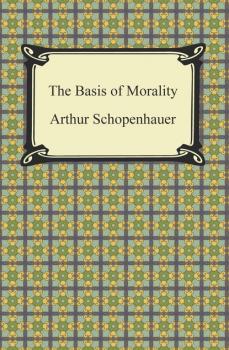ТОП просматриваемых книг сайта:
Философия
Различные книги в жанре Философия, доступные для чтения и скачиванияАннотация
"The Ethics" is the magnum opus, the most famous work of Benedict de Spinoza, considered one of the great rationalists of 17th-century philosophy. In this volume, which was published posthumously, Spinoza lays out his ethical philosophy in geometrical order, with axioms and definitions followed by propositions. «The Ethics» is divided into five parts: Part One – Concerning God, Part Two – On the Nature and Origin of the Mind, Part Three – On the Origin and Nature of the Emotions, Part Four – Of Human Bondage, or The Strength of The Emotions, and Part Five – Of the Power of the Understanding, or Of Human Freedom. Spinoza's «Ethics» is considered one of the most important philosophical treatises on the subject and a must read for all students of philosophy. Also contained in this volume is a representative selection from Spinoza's «On the Improvement of the Understanding».
Аннотация
First released in 1901, about one year after Nietzsche's death, «The Will to Power» is a collection of Nietzsche's unedited and unpublished writings. Though the title and all of the ideas are of the radical philosopher's own invention, the order and selection of Nietzsche's notebooks are due to the organization of his sister. As a result of his poor health, Nietzsche used his remaining energy to write a different work, leaving «The Will to Power» in the earliest stages of writing. The topics he explores vary widely and include nihilism, religion, morality, the theory of knowledge, and art. Some ideas are reflected in the works Nietzsche managed to complete in his lifetime, while others show his progression toward those ideas in his earlier life. Overall, «The Will to Power» is an opportunity to read the intellectual journaling of one of the nineteenth century's most brilliant thinkers.
Аннотация
"Human, All-Too-Human (Parts I and II)" is a collection of philosophical aphorisms by famed philosopher Friedrich Nietzsche. The first part, originally published in 1878, is a collection of 638 aphorisms in which Nietzsche discusses metaphysics, the Christian idea of good and evil, religious worship, the idea of divine inspiration in art, social Darwinism, the respective roles of men, women and children in society, the power of the state, and in a final section “Man Alone with Himself”. In the second part we find what were originally published as parts II (1879) and III (1880), which contains 408 and 350 aphorisms respectively. Friedrich Nietzsche is widely regarded as one the most important philosophers of all time and that impact is ever apparent in this book, an accessible volume of thoughts upon social, religious, cultural, political and psychological issues.
Аннотация
"The Ethics" is the magnum opus, the most famous work of Benedict de Spinoza, considered one of the great rationalists of 17th-century philosophy. In this volume, which was published posthumously, Spinoza lays out his ethical philosophy in geometrical order, with axioms and definitions followed by propositions. «The Ethics» is divided into five parts: Part One – Concerning God, Part Two – On the Nature and Origin of the Mind, Part Three – On the Origin and Nature of the Emotions, Part Four – Of Human Bondage, or The Strength of The Emotions, and Part Five – Of the Power of the Understanding, or Of Human Freedom. Spinoza's «Ethics» is considered one of the most important philosophical treatises on the subject and a must read for all students of philosophy.
Аннотация
Written in 1759 by Scottish philosopher and political economist Adam Smith, «The Theory of Moral Sentiments» provides much of the foundation for the ideas in his later works, most notably in «The Wealth of Nations.» Through this initial text, Smith expresses his general system of morals, exploring the propriety of action, reward and punishment, sense of duty, and the effect of numerous factors on moral sentiment. In so doing, Smith devised innovative theories on virtues, conscience, and moral judgment that are still relevant and accessible today. Though somewhat surprising to find a philosopher of Smith's abilities discussing aspects such as luck and sympathy and how they affect self-image or relationships, «The Theory of Moral Sentiments» never loses its critical excellence in its good-natured understanding of the human exploration for the meaning of being good.
Аннотация
George E. Moore (1873-1958) was a hugely influential philosopher of the 20th century. Moore spent most of his career concerned with ethics. Along with Bertrand Russell, Ludwig Wittgenstein, and Gottlob Frege, he developed the analytical tradition of modern philosophy, using a scientific and even mathematical approach to logic and reason. Also a member of the Bloomsbury Group, Moore made cultural waves, become a sort of intellectual celebrity of his day. His 1903 monograph «Principia Ethica» has become a foundational text for modern ethics. At the heart of this classic is an examination of «good». What is this concept and how is it defined? Moore contests that «good» is indefinable, only to be known and understood through a direct experience of «good». This, of course, has broad repercussions when examining ethics. «Principia Ethica,» then further examines moral intuition, the naturalistic fallacy, and organic unity. Moore takes up these issues with lucidity and eloquence, making this text a true pleasure to read. A pillar of modern philosophy, «Principia Ethica» continues to be standard reading for any student of philosophy, resonating with an increasingly complex world.
Аннотация
Originally delivered as a set of lectures at Manchester College «On the Present Situation in Philosophy,» «A Pluralistic Universe» is a classic of philosophical thought. In it, William James explores the ideas of many philosophical contemporaries. Most notably James explores the idea of Gustav Fechner that «the whole universe in its different spans and wave-lengths, exclusions and developments, is everywhere alive and conscious.» Put more simply James believes that from the myriad consciousnesses of the world comes a «consciousness of still wider scope.» It is this idea that forms the basis for the philosophy of Pluralism.
Аннотация
Thomas More's «Utopia» is one of the most influential books in western literature. Within «Utopia» is described an idealized island community upon which perfect social harmony has been achieved. On this island all property is community owned, violence is nonexistent and everyone has the opportunity to work and live in an environment of religious tolerance. Many social movements throughout history have drawn upon More's work for inspiration. While possibly unachievable Thomas More's «Utopia» gives a vision of what could be.
Аннотация
Arthur Schopenhauer (1788-1860) attended the University of Göttingen where he studied metaphysics and psychology. It was here that he first found philosophical inspiration in the works of Plato and Immanuel Kant, two men who would have significant influence on Schopenhauer's work. One of the best known nineteenth-century philosophers, Schopenhauer published «The Basis of Morality» in 1839 as a response to a question posed by the Royal Danish Society of Scientific Studies. The work was written in four sections: the first part provides Schopenhauer's answer to the Society's question as well as an interpretation of western ethics; the second section is a criticism of Kantian ethics; the third lays out the construction of Schopenhauer's own ethical theory; and the final section examines the metaphysical foundations of ethics. As a whole, the work is an extensive discussion of compassion as the basis for morality, and the will of human beings to be unselfish.
Аннотация
Written between 1873 and 1876, The «Untimely Meditations», or «Thoughts out of Season» is a collection of four essays by famed philosopher Friedrich Nietzsche. In the first essay 'David Strauss: the Confessor and the Writer', Nietzsche attacks David Strauss's «The Old and the New Faith: A Confession». In the second essay 'On the Use and Abuse of History for Life', Nietzsche presents an alternative way of reading history, one where living life becomes the primary concern. In the third essay 'Schopenhauer as Educator', Nietzsche describes how the philosophic genius of Schopenhauer might bring on a resurgence of German culture. In the fourth and final essay 'Richard Wagner in Bayreuth', Nietzsche investigates the music, drama and personality of Richard Wagner. Nietzsche originally planned this work to comprise thirteen essays but it is suggested that he lost interest in the work after writing just four. In this early philosophical work one can begin to see the development of a brilliant philosophical mind, which would become more evidenced by his later works.










